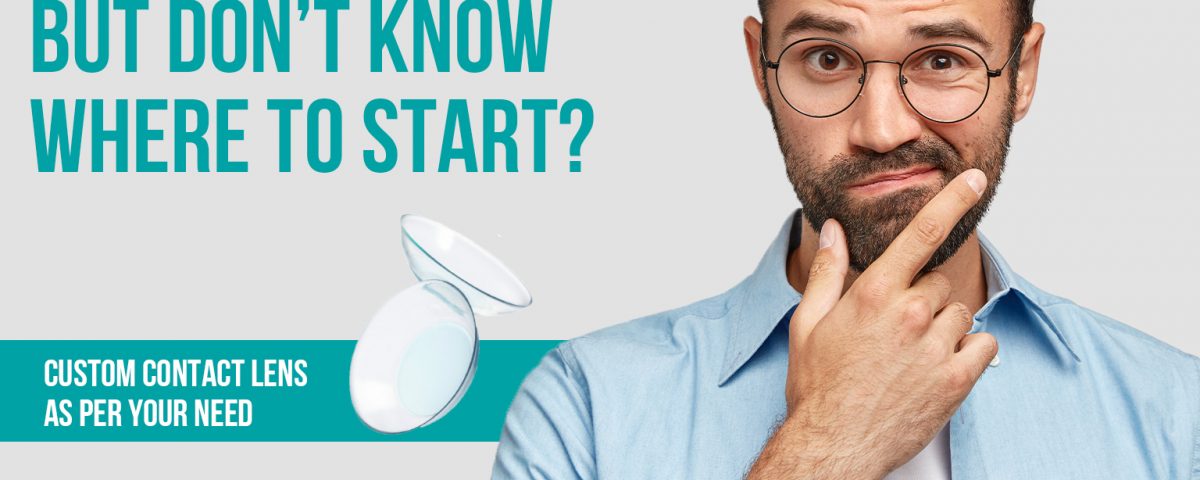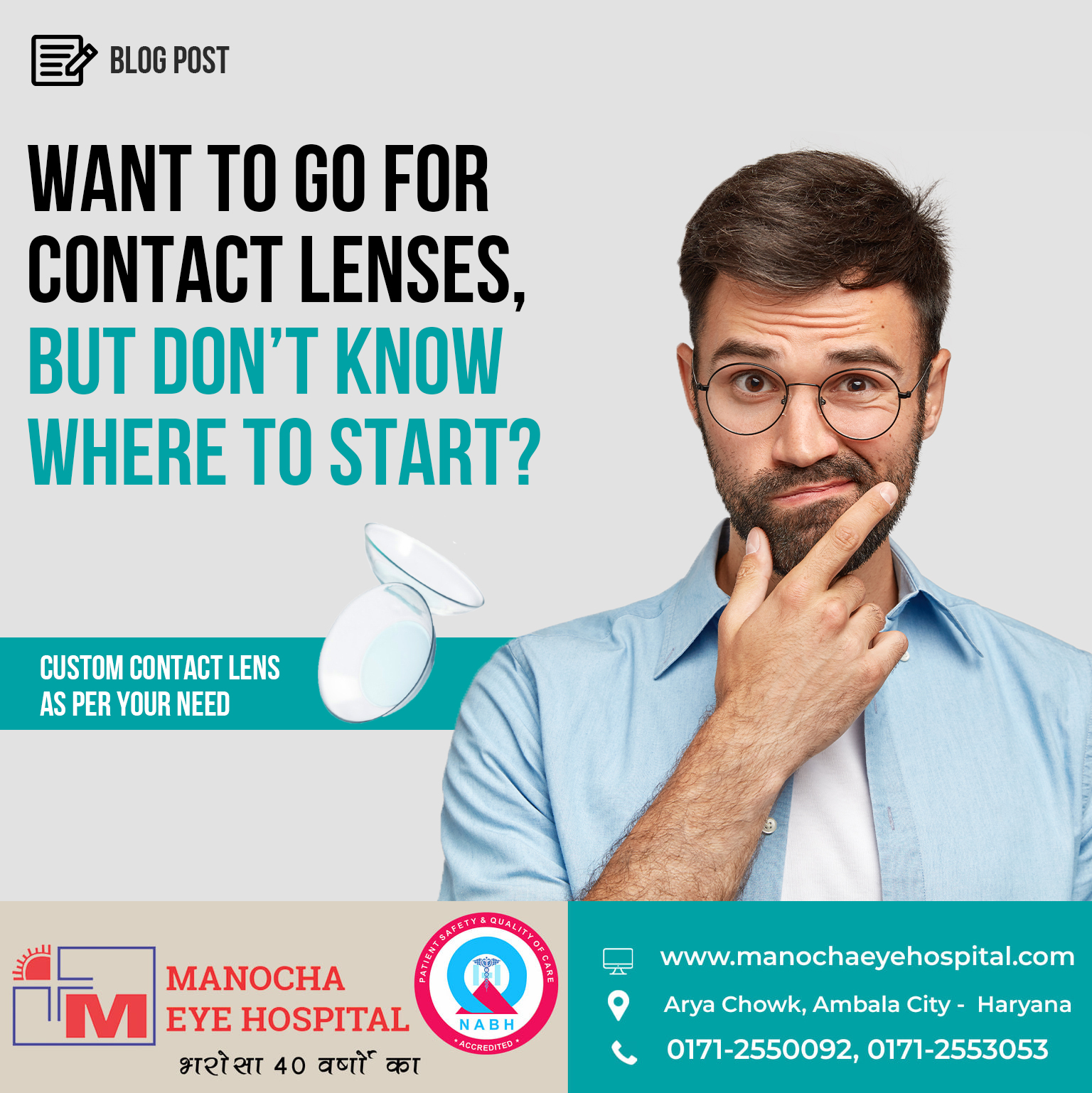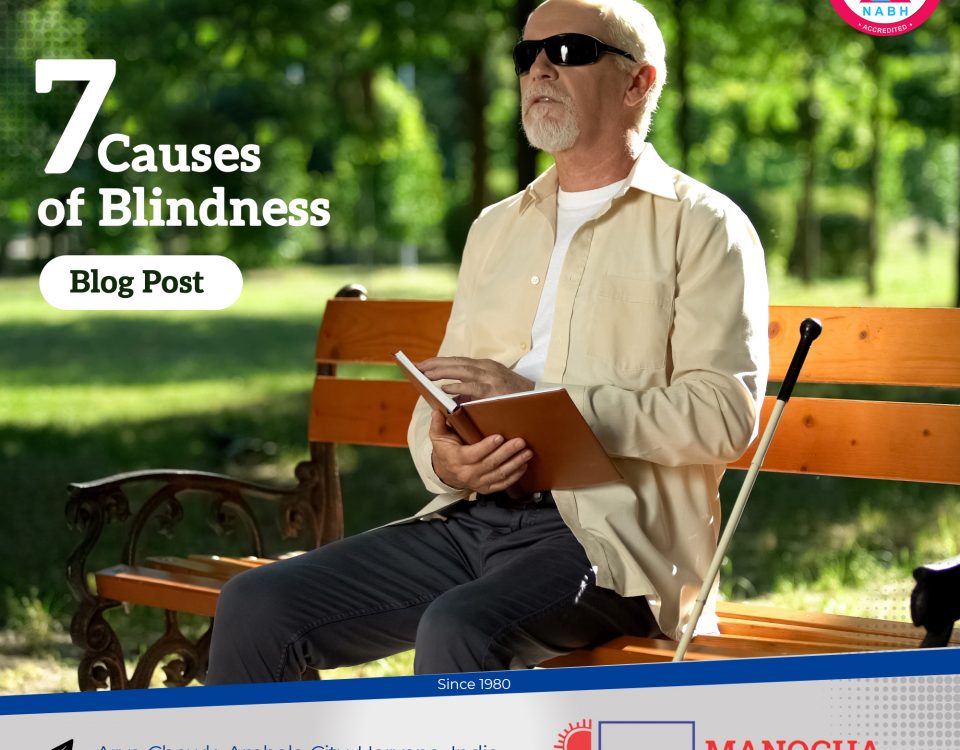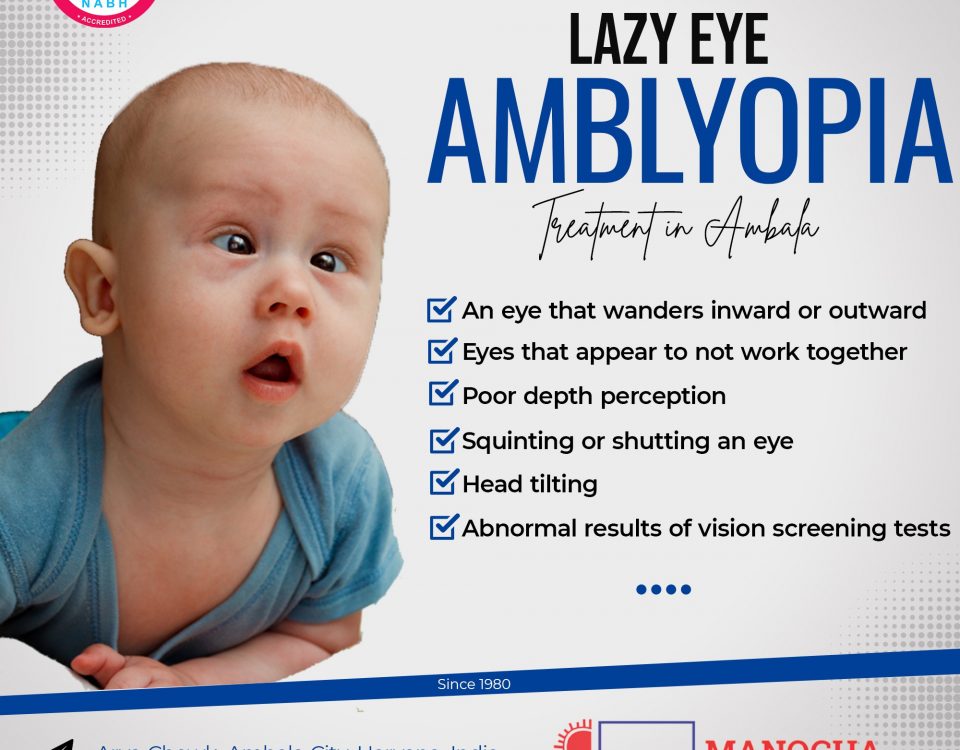- IMPORTANT ANNOUNCEMENT : Manocha Eye Hospital is now on the empanelment of Haryana Government. Employees of all departments of Haryana Government can take benefits.
Type Of Contact Lenses & Custom Contact Lenses In Haryana

We Accept : ECHS + CGHS
February 14, 2021
एस्टिग्मेटिज्म क्या है — कारण, लक्षण, निदान और इलाज
April 30, 2022Type Of Contact Lenses & Custom Contact Lenses In Haryana

Contact Lenses In Ambala | Manocha Eye Hospital

At Manocha Eye Hospital - Ambala we are specialised for Custom Contact lenses as per your need. We have hundreds of satisfy patients who get Contact Lenses from Manocha Eye Hospital. So If you want to buy contact lenses or want a Contact Lenses for your vision Correction just Visit Manocha Eye Hospital in Ambala Once and explore the range of contact lenses available with us.
Refractive error is one of the most common problems not only in India (but across the world). As per a report, under-corrected refractive error is one of the common causes of reversible blindness in India. Refractive error hampers your vision, and the objects closer and/or far distant start getting blur.
Such errors are normally treated using corrective lenses such as spectacles and contact lenses. Many people who are not comfortable wearing spectacles opt for contact lenses to correct the refractive errors, including nearsightedness, farsightedness, presbyopia, and astigmatism.
Unlike glasses, contact lenses do not fog up, nor they get drenched in water. However, when it comes to choosing contact lenses for eyesight, you should always consult an experienced eye doctor. Get the contact lenses from a good renowned brand only since it would offer you better vision and a comfortable feeling when wearing them. In no scenario you should experience itchiness in the eyes when you are wearing the lenses.
Type Of Contact Lenses
There are two general categories of contact lenses – soft and rigid gas permeable (RGP). All contact lenses require a valid prescription.- Soft Contact Lenses
- Rigid Gas Permeable (RGP) Contact Lenses
- Extended Wear Contact Lenses
- Disposable (Replacement Schedule) Contact Lenses
- Conventional Hard Lenses (PMMA)
- Decorative Contact Lenses
1. Soft Contact Lenses
Soft contact lenses are made of soft, flexible plastics that allow oxygen to pass through to the cornea. Soft contact lenses may be easier to adjust to and are more comfortable than rigid gas permeable lenses. Newer soft lens materials include silicone-hydrogels to provide more oxygen to your eye while you wear your lenses.
2. Rigid Gas Permeable (RGP) Contact Lenses
Rigid gas permeable contact lenses (RGPs) are more durable and resistant to deposit buildup, and generally give a clearer, crisper vision. They tend to be less expensive over the life of the lens since they last longer than soft contact lenses. They are easier to handle and less likely to tear. However, they are not as comfortable initially as soft contacts and it may take a few weeks to get used to wearing RGPs, compared to several days for soft contacts.
3. Extended Wear Contact Lenses
Extended wear contact lenses are available for overnight or continuous wear ranging from one to six nights or up to 30 days. Extended wear contact lenses are usually soft contact lenses. They are made of flexible plastics that allow oxygen to pass through to the cornea. There are also a very few rigid gas permeable lenses that are designed and approved for overnight wear. Length of continuous wear depends on lens type and your eye care professional’s evaluation of your tolerance for overnight wear. It’s important for the eyes to have a rest without lenses for at least one night following each scheduled removal.
4. Disposable (Replacement Schedule) Contact Lenses
The majority of soft contact lens wearers are prescribed some type of frequent replacement schedule. “Disposable,” as defined by the FDA, means used once and discarded. With a true daily wear disposable schedule, a brand new pair of lenses is used each day.
Some soft contact lenses are referred to as “disposable” by contact lens sellers, but actually, they are for frequent/planned replacement. With extended wear lenses, the lenses may be worn continuously for the prescribed wearing period (for example, 7 days to 30 days) and then thrown away. When you remove your lenses, make sure to clean and disinfect them properly before reinserting.
5. Conventional Hard Lenses (PMMA)
These are hard contact lenses that are primarily made of stiff plastic called PMMA (Polymethyl methacrylate). Unlike soft or GP contact lenses, hard lenses do not mould to the shape of the eyes. Conventional hard lenses can handle wear & tear and also offer high durability. The major downside is that hard lenses are the least comfortable for the eyes. It is recommended to consult an eye doctor before opting for the contact lenses that suit your requirements.
6. Decorative Contact Lenses
Decorative contact lenses change the look of your eyes. They may not correct your vision. They can temporarily change your brown eyes to blue or make your eyes look like cat eyes or vampire eyes for Halloween. Just like corrective contact lenses you should never buy decorative contact lenses from a street vendor, beauty supply store, flea market, novelty store or optical store—and you should always have a prescription.
Wearing any kind of contact lenses, including decorative ones, can cause serious damage to your eyes if the lenses are obtained without a prescription or not used correctly.
How long should you wear contact lenses?
This is the first question that pops into the minds of first-time buyers of contact lenses. Before we answer this question, it is essential to reiterate that contact lenses are worn inside the eyes. In no case should you have a discomfort feeling when wearing the lenses.
The answer to the question is ‘Wearing time of the contact lenses largely depends on its type (or category)’. Based on the wearing time, here are the broad categories of contact lenses:
Daily wear contact lenses
cannot be worn overnight since your eyes might experience a lack of oxygen when these contacts are worn when sleeping.
Extended wear contact lenses
Can be worn overnight at least for a few days (precisely a week).
What is the procedure to buy Contact Lenses?
The first step in buying the best contact lenses for eyes is consulting an experienced eye specialist. Our team at Manocha Eye Hospital will help you with a comprehensive eye assessment and help you choose the best contact lenses for your eyes. Just visit Manocha Eye Hospital - Ambala our team of experts will guide you steps to buy Contact Lenses.



